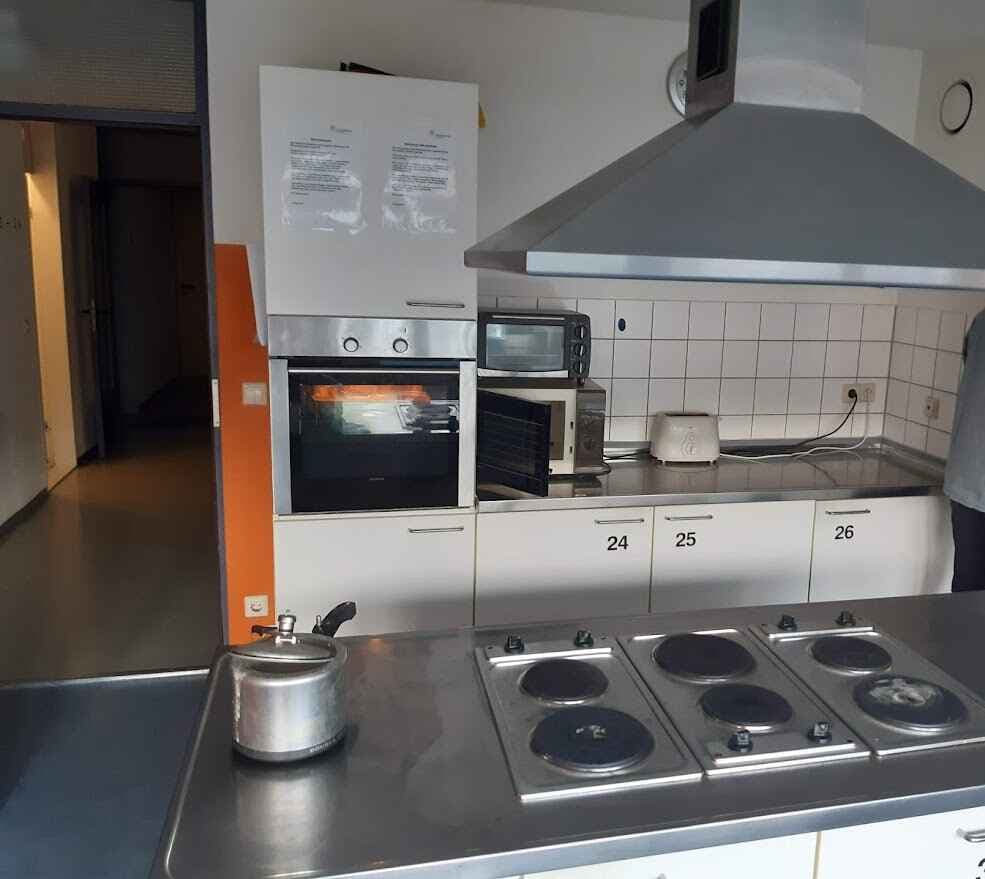What Students Say
Likes
- There were above 100 electives to choose from
- Flexible course structure: choose electives from CS an EE department
- Content of the each course
Dislikes
- There could have been more hands on projects for each course
- My studies was during covid times, so was a little tough to have a conversation with Professors (un till the lockdown was removed)
- Too much flexibility in the course, can also be a bane as the student might not take it too seriously
Course Curriculum
- The course difficulty depends on the electives you choose. Some require more time and effort to score, whereas others are much easier and also easier to score.
- Most of the electives were theoretical; some of them had course projects. So while selecting the course, make sure you look at the course structure and what its deliverables are.
- There will be around 2-3 classes per day; it mainly depends on the number of electives you choose per semester. You can choose even just 1 or 10; it depends on you.
- We can consider the average number to be around 20-25. There were significant Indian students in my program (not sure abut the number), but around 30-40%
Admission Experience
-
I applied for the following universities:
- University of Stuttgart - INFOTECH Program - Admitted
- Hochschule Esslingen – Rejected
- I had applied for a master's in automotive programme at Esslingen University.
- I received the rejection for not having prior experience in the automotive domain.
- As it was mentioned on their website, "Better to have some experience in the automotive sector."
- Also, I pursued a master's directly after my bachelor's, so the industry experience was missing, which was one of the reasons for getting rejected. (as the program needed exp.)
- I chose the city first, Stuttgart, and then looked for universities in this region.
- Applied to two unis, got admitted to one and rejected to the other.
- The main eligibility criteria were the CGPA from your bachelors (above 9 is good, but now the competition has also increased). The other requirement: IELTS of minimum 7 (as the course was in English)
- Bachelor course: the electives in your bachelor's also play a role in the selection. It must be in line with the course you are applying for. The admission process was very easy. Create an account on the Uni official page and the steps to be followed are given in a simple way.
- Everything was online (filling in the details and uploading the documents). Once selected, we can make the payment and complete the admission. There weren't any challenges, as it was very easy and streamlined! I applied for the winter intake. It was during October 2020. My bachelor's got completed in June-July 2020, so I applied for the coming winter semester. The entire admission process took around 4 months. The University will take around 3 months after the deadline to give the verdict.
- These dates are clearly mentioned on the University website (https://www.student.uni-stuttgart.de/en/organizing-studies/semester-dates/). It depends on the program you choose and not just the University
Faculty
- The faculty-to-student ratio may be around 1:20.
- With the professors, there are also research assistants with whom you can get your doubts cleared, and they also guide you during the projects and lab work.
- Regarding the job, the course content is surely good, but is it sufficient for the job? The answer is no. You will have to gain experience from internships/work-student/thesis to strengthen your resume.
- But the content is really good, as it touches on core concepts of the programme that you choose.
Campus Life
- I am not a social guy and hence was not included in any of the events as such.
- But there were many events organised, such as robotics, hyperloop, potluck and many more. There is a sports arena as well as a sports club and gym. There is also an online and offline library.
- Since my studies were during covid times, there were not any celebrations as such.
- There are many student organisations for each department, like the Signal Processing team, the Embedded team and others, which are involved with carrying out projects for competitions.
Part Time Jobs
- There are various work-student positions in different companies. Selection to it depends on your qualifications.
- Also, there are research assistant jobs in Uni in different departments. Many students look for part-time jobs outside Uni for a better salary.
- The hourly wages depend on the type of job and the company, but for an average, you can consider somewhere between 10 and 18 euros per hour.
- Also, there is the opportunity to pursue an internship or master's thesis in an industry where the salary is also good. It will be above 1000 euros per month.
- Important: There is NO on-campus placement; you will have to search for the job on your own.
- Having work experience on your resume is valued highly.
- Around 80% of students find part-time jobs in the industry in which they are pursuing masters. Some carry out the work in other jobs like delivery, dhl, restaurants. Currently it has become a little difficult to secure the job because of the increase in the number of incoming students. And to find the part-time jobs, there are various websites which help you find the openings within your region. Most of the industry-based jobs include interviews, like technical and HR.
Placement
- The percentage of placements is based on many factors, like market conditions, the industry you have opted for and your work experience.
- Important : WORK Experience is highly valued.
- The average salary is around 50000 - 56000 Euro without major work experience.
- We find jobs through various portals like stepstone, linkedin, visiting companies official websites (career portals), and contacting managers through linkedin and sharing our resumes.The referrals also help.
- Some of the companies my classmates placed are Vector, Sony, Bosch, DSpace, NI, Bertrandt, DLR.
- The job profiles: Embedded Software Developer, Embedded tester, Python Developer, Signal Processing Engineer.
- Currently the market is down, because of which most of the companies are looking for experienced graduates.
Accommodation
- The accommodation can be found through the University website.
- First we have to apply and it will be allotted based on availability. The monthly rent started at 280 euros and went up to 330 euros.
- It included a shared bathroom and kitchen and individual rooms. The rooms are sufficiently big for individual and the kitchen includes refrigerator, stove, dining table (pretty good, not great)
Exams
- Exams required for my program: IELTS (other score would be beneficial but not mandatory)
- Documents necessary: Letter of recommendation, transcripts of records from bachelor's, degree certificate of bachelor's, 12th, and 10th.
- There were a few other docs: the CGPA Conversion formula (Indian to german grade) and the certificate from B.E.
- List of all the electives/subjects taken during B.E. Statement of purpose is also needed.
Fees
- The Full Fees during my studies was 1700 Euro per semester
- It included semester fees (~1500) and other charges.
- This payment also included student travel ticket (using which you could travel free after 6pm)
- The cost of the Hostel(Dorm) was 330 Euro per month (it started with 280 euro but was later increased)
- The Monthly Expense was around 150 - 190 Euro (groceries, hotel and other basic stuff)
- Health Insurance: 130 Euro (it is mandatory)
Scholarship
- I had not received any scholarship for my studies.
- There were few girls from India from our batch who had got the scholarship.
- The name of the scholarship was "Women in STEM Scholarship" and was awarded for women.
- Not sure about the details regarding the amount covered in this scholarship nor sure about the eligibility criteria. I am not sure about other scholarships. But do check : "DAAD" for more info







